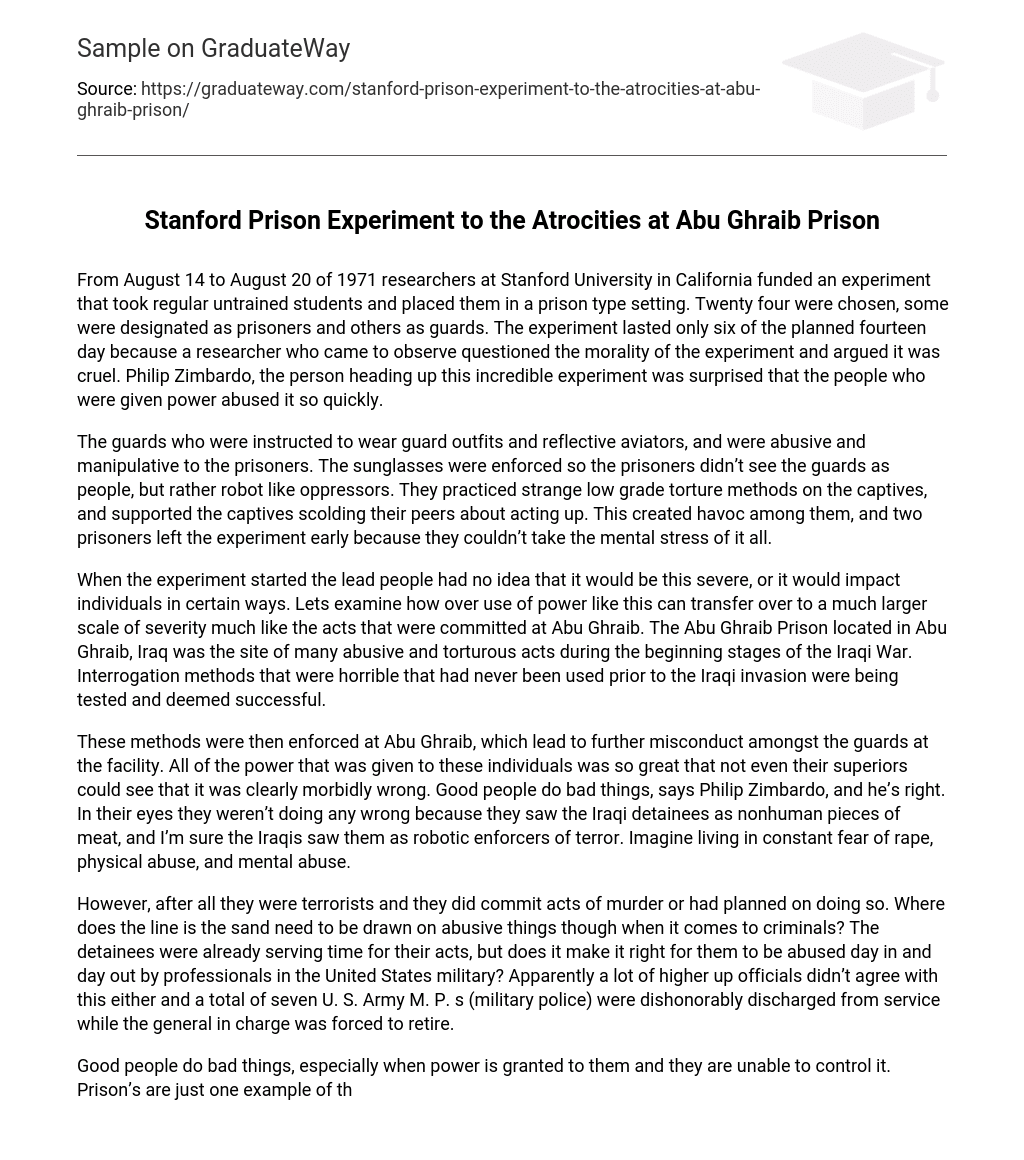From August 14 to August 20 of 1971 researchers at Stanford University in California funded an experiment that took regular untrained students and placed them in a prison type setting. Twenty four were chosen, some were designated as prisoners and others as guards. The experiment lasted only six of the planned fourteen day because a researcher who came to observe questioned the morality of the experiment and argued it was cruel. Philip Zimbardo, the person heading up this incredible experiment was surprised that the people who were given power abused it so quickly.
The guards who were instructed to wear guard outfits and reflective aviators, and were abusive and manipulative to the prisoners. The sunglasses were enforced so the prisoners didn’t see the guards as people, but rather robot like oppressors. They practiced strange low grade torture methods on the captives, and supported the captives scolding their peers about acting up. This created havoc among them, and two prisoners left the experiment early because they couldn’t take the mental stress of it all.
When the experiment started the lead people had no idea that it would be this severe, or it would impact individuals in certain ways. Lets examine how over use of power like this can transfer over to a much larger scale of severity much like the acts that were committed at Abu Ghraib. The Abu Ghraib Prison located in Abu Ghraib, Iraq was the site of many abusive and torturous acts during the beginning stages of the Iraqi War. Interrogation methods that were horrible that had never been used prior to the Iraqi invasion were being tested and deemed successful.
These methods were then enforced at Abu Ghraib, which lead to further misconduct amongst the guards at the facility. All of the power that was given to these individuals was so great that not even their superiors could see that it was clearly morbidly wrong. Good people do bad things, says Philip Zimbardo, and he’s right. In their eyes they weren’t doing any wrong because they saw the Iraqi detainees as nonhuman pieces of meat, and I’m sure the Iraqis saw them as robotic enforcers of terror. Imagine living in constant fear of rape, physical abuse, and mental abuse.
However, after all they were terrorists and they did commit acts of murder or had planned on doing so. Where does the line is the sand need to be drawn on abusive things though when it comes to criminals? The detainees were already serving time for their acts, but does it make it right for them to be abused day in and day out by professionals in the United States military? Apparently a lot of higher up officials didn’t agree with this either and a total of seven U. S. Army M. P. s (military police) were dishonorably discharged from service while the general in charge was forced to retire.
Good people do bad things, especially when power is granted to them and they are unable to control it. Prison’s are just one example of this classic situation, many leaders abuse power, but why? This question often raises eyebrows, but can it be answered? I certainly cannot. With great power comes great responsibility a wise man once said, and often times more scrutiny. Authoritarian figures must act as if they did before they had power, then they might realize the actions the are portraying are horribly wrong.
Treating others as if they didn’t have a soul isn’t the way to solve any problems. Considering these Taliban and Aq Qaeda have no true country of origin, does this make it easier for us to abuse them? Who would fight for them? These questions are important to ask when thinking about this topic. I personally think that the soldiers who committed these crimes got the right punishment and shouldn’t in any way, shape, or form ever get away with treating a human the way they did. Al Ghraib is a place on earth where evil did exist and way very alive and well.





